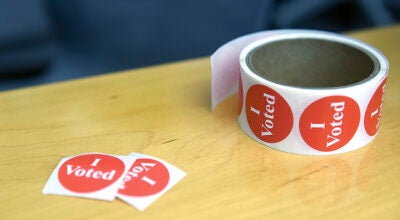Poppe, Sparks watch as state nearing plan to raise taxes on top 2 percent
Published 10:10 am Friday, May 17, 2013
Local legislators are watching as leading Minnesota lawmakers sorted out a tax package Thursday that will require the wealthy, smokers and corporations to pay more, a cornerstone of the next state budget that they’re running short on time to pass. Many of the measures that Rep. Jeanne Poppe and Sen. Dan Sparks, both DFL-Austin, have previously touted will remain in the bill set to come before the state Legislature.
The top 2 percent of income earners will see a portion of their earnings taxed at a rate 2 percentage points higher. The per-pack tax on cigarettes will rise by $1.60. Some corporate tax preferences will go away. Sales taxes will be imposed on business transactions involving warehousing, electronic equipment repair and commercial maintenance.
But there won’t be any increases to the alcohol tax, as House Democrats had sought. Nor will there be a temporary tax surcharge on incomes of $500,000 or more as a way to erase the state’s debt to schools that accumulated during prior budgets.
Poppe said before the deal was announced Thursday she had hoped the alcohol tax would be removed from the bill, as she and Sparks previously stated the tax would be a regressive-style sin tax.
“If we don’t have an alcohol tax, that would also be a good thing,” she said.
Gov. Mark Dayton, House Speaker Paul Thissen and Senate Majority Leader Tom Bakk said during a hastily arranged news conference Thursday that the agreement will pave the way for the Legislature to pass its budget before a mandatory Monday night adjournment to the session. And they said the tax increases — a combined $2 billion over the next two years — will plug a $627 million projected deficit and pay for a big jump in education spending and other priority programs.
“We are on the cusp of an important course correction in our state’s history,” Thissen said.
All three in the state’s all-Democratic power alignment made concessions that they said were needed to close the deal.
“This is the linchpin of the session,” Bakk said. “Now everything will fall in” place.
The new income tax mirrors a proposal Dayton laid out back in January: Couples will pay 9.85 percent on every taxable dollar they earn above $250,000, and singles on earnings above $150,000. The current top rate is 7.85 percent. The new tax is expected to generate slightly less than $1.2 billion.
Minnesota’s cigarette tax would jump to $2.83 per pack — shooting 30 cents past what Wisconsin charges and going well beyond what the rest of the neighboring states assess. It would bring in $370 million, but tens of millions of dollars would come through higher excise taxes on snuff and cigars, too.
Sparks and Poppe have previously expressed concerns with a cigarette tax increase. Neither legislator was immediately available for comment Friday morning.
But the top Democrats said there will be tax relief too. They said there will be $400 million put into local government aid and direct property tax assistance programs. In addition, cities and counties will save about $100 million per year through an exemption in the sales taxes they pay, which could ease pressure on homeowner and business property tax rates.
Republicans said Democrats were going too far in their push for higher taxes. Senate Minority Leader David Hann said the taxes targeted at businesses will trickle down the retail chain.
“This idea that it is only going to affect businesses is nonsense. It is ultimately going to affect consumers and everybody that buys anything those businesses support,” Hann said.
Despite total legislative control, some Democratic goals were in doubt thanks to House-Senate tension. They were stuck on a proposed minimum wage hike, with the House holding to a plan to boost it to $9.50 by 2015 and the Senate holding to a $7.75 wage.
Sparks said before the tax package was announced Thursday it was too soon to write off the minimum wage issue, as legislators have plenty of time to decide on issues before the session ends at midnight Monday.
“I think we still have a lot of work to do in the four days left,” he said Thursday.
—The Associated Press contributed to this report.





